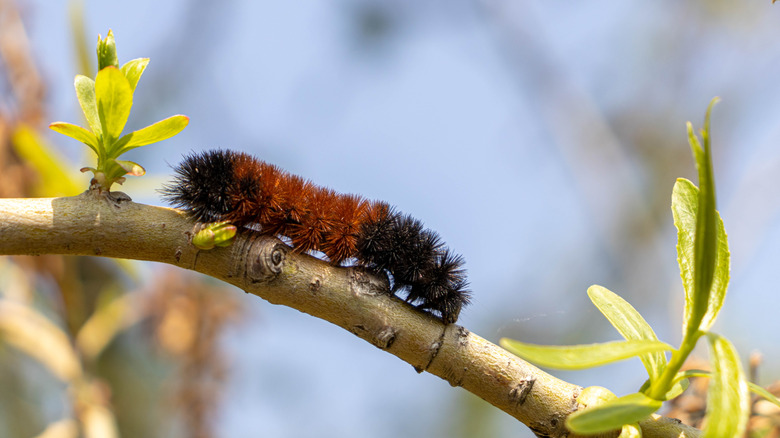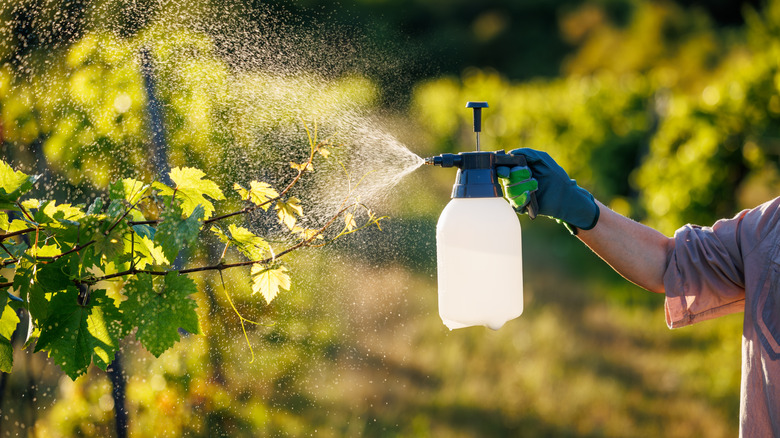What To Do If Woolly Bear Caterpillars Are Wreaking Havoc In Your Garden
Woolly bear caterpillars are a sign that fall is on the way. Found across North America, these fuzzy creatures are identified by their distinctive black and orange stripes and emerge as caterpillars in early summer, and again in the fall, when these bugs have a big impact on their environment. They can survive in numerous habitats, feeding on a variety of vegetation — such as grasses, clover, and dandelions — in preparation for hibernation.
So, are woolly bear caterpillars good or bad for your garden? It depends on a few factors. If they stick to their preferred diet of weeds and other low-growing vegetation, your garden will benefit. They can also outcompete garden pests, such as beetle larvae, for food. However, if large numbers of woolly bear caterpillars decide to move in, they may begin to feed on your ornamental plants and vegetables as well. In these larger numbers, woolly bear caterpillars can cause unsightly damage and weaken your plants. Pest control might be necessary to stop caterpillars from munching in your garden.
What you can do about woolly bear caterpillars
If woolly bear caterpillars are wreaking havoc on your garden, there are several natural and chemical methods you can use to stop them from causing any more damage. If you prefer not to use pesticides, try using the woolly bear caterpillar's natural predators to your advantage. Birds and wasps feed on woolly bear caterpillars, so you can install bird feeders and plant flowers that attract these pollinators to your garden. Physical barriers, such as netting, are a natural option for keeping caterpillars off your plants.
If you prefer to use organic pest control methods, you have a few options. Neem oil and insecticidal soap are well-known and highly regarded among gardeners for their effectiveness in controlling pests. Each of these substances is diluted in water and sprayed onto your plants. You can also sprinkle diatomaceous earth around your garden to kill woolly bear caterpillars.
While organic methods work well, there are also biological pesticides. Biological pesticides containing Bacillus thuringiensis and Spinosad target caterpillars and are highly recommended by gardeners. Each of these substances is derived from a natural soil bacterium that is toxic to caterpillars.

